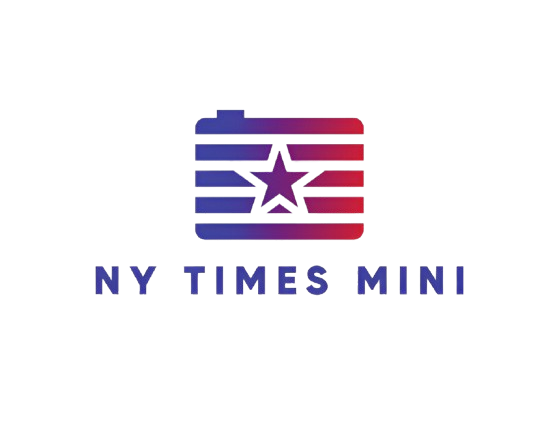
8 Strategies to Solve the NYT Mini Crossword Fast
# Table of Contents
1. Work The Hard Ones Last
2. Play The Monday Puzzle
3. Follow The Quotes
4. Guess and Check
5. Break Down The Clues
6. Widen Your Knowledge Base
7. Use The Auto Check Feature
8. Think of The Clues Like Riddles
Work The Hard Ones Last
When approaching the NYT Mini Crossword, it’s beneficial to prioritize the clues you feel confident about. It’s common for players to encounter clues they find challenging. If the answer isn’t coming to mind quickly, don’t dwell on it. Instead, skip it and return later. This method allows you to fill in other answers, which can provide valuable letters and hints to help solve tricky clues.
Play The Monday Puzzle
For beginners, it’s advisable to start with Monday puzzles due to their simpler clues. As the week progresses, the puzzles tend to become more challenging. By consistently tackling Monday puzzles, you can build confidence and acclimate to the clues’ patterns, making it easier to approach harder puzzles later in the week.
Follow The Quotes
Pay careful attention to clues featuring quotation marks. These often indicate that the answer will be a word or phrase as it would be spoken aloud. Rethinking the clue in simpler terms can often lead to the correct answer. For example, if the clue is “Quiet Down,” the answer is likely to be “Shh,” which is a verbal representation of the instruction.
Guess and Check
If you encounter a clue that leaves you perplexed, a strategic guess can sometimes help. After filling in known answers, return to the uncertain clue and think about whether you need a vowel or consonant. Recognizing common patterns in how letters are arranged can guide your guesses.
Break Down The Clues
Reading clues carefully is essential, as some words may have dual meanings. When you see phrases that could be interpreted in multiple ways, take a moment to consider each possible meaning. This can help clarify your understanding of the clue and lead to the correct answer.
Widen Your Knowledge Base
Expanding your vocabulary and general knowledge through reading can significantly enhance your crossword-solving skills. Engaging with trivia games or various forms of literature will make you more adept at recognizing clues and answering them more swiftly.
Use The Auto Check Feature
The Auto Check feature is a useful tool in the NYT Mini Crossword. By clicking the help icon, you can receive feedback on incorrect letters without revealing entire answers. This can help you fine-tune your solutions quickly.
Think of The Clues Like Riddles
Many crossword clues require creative thinking. Treating them like riddles might help you discover the right answers. If a clue seems awkward or confusing, it may be designed to challenge your typical reasoning, so remain open-minded when interpreting clues.
Introduction to Wordle and NY Times Mini Crossword
Understanding the Basics
The New York Times Mini Crossword and Wordle are both popular word games that challenge players’ vocabulary and problem-solving skills. The Mini Crossword is a compact puzzle measuring five by five squares, designed for quick sessions. Players fill in their answers by working through clues that can lead to single words or phrases. On the other hand, Wordle presents daily five-letter word challenges, where players use a maximum of six guesses to find the correct answer, with hints provided through color-coded feedback.
The format of the Mini Crossword allows for a more casual interaction with wordplay. It is ideal for players seeking a brief brain workout, while Wordle appeals to those looking for a game with a time constraint, adding an element of immediate gratification as users strive to find the solution before the next puzzle drops. Both games leverage a strong community, encouraging social interaction and sharing answers among users.
Brief History and Popularity
The rise of the New York Times Mini Crossword can be traced back to the growing demand for bite-sized recreational activities that fit seamlessly into busy lifestyles. The Mini was officially introduced in 2014 as a response to readers’ increasing interest in accessible and quick puzzles. It gained traction as more people turned to online platforms for entertainment, especially amid the pandemic when traditional hobbies became a way to connect and unwind.
On the other hand, Wordle emerged in late 2021, created by software engineer Josh Wardle as a personal project for his partner. It exploded into popularity, captivating millions with its simple rules and daily challenge format. The game became a cultural phenomenon, leading to its acquisition by The New York Times in early 2022, cementing its place in the landscape of word games. Both the Mini Crossword and Wordle continue to thrive, appealing to a diverse audience that appreciates linguistic challenges, social sharing, and a sense of community in their gaming experiences.
By keeping puzzles engaging and accessible, these games have reshaped how players perceive crossword puzzles and word games, making them an essential part of daily leisure activities for many. With their user-friendly designs and simple rules, both the New York Times Mini Crossword and Wordle are set to maintain their popularity among enthusiasts and casual players alike.
General Strategies for Solving Puzzles
Time Management Tips
When tackling the New York Times Mini Crossword, efficient time management can significantly enhance your solving experience. Rather than getting stuck on challenging clues, you should prioritize the ones you feel confident about. This will allow you to quickly fill in letters which may provide helpful hints for the more difficult clues later on. If an answer doesn’t come to you immediately, it’s wise to move on. This approach prevents frustration and keeps your momentum going. By developing a routine where you spend only a minute or two on tough clues before circling back later, you will be better positioned to complete the puzzle within a short timeframe.
Additionally, pay attention to the day of the week, as puzzles tend to increase in difficulty from Monday to Sunday. Starting your week with the simpler Monday puzzles can serve as a warm-up and help you build confidence. By mastering the fundamental strategies during these early puzzles, you will feel more prepared and capable of tackling the more complex clues that arise later in the week.
Developing a Puzzle-Solving Routine
Establishing a consistent puzzle-solving routine can greatly improve your performance over time. One effective way to do this is to dedicate a specific time each day to engage with the New York Times Mini Crossword or similar word games. Treat this like an enjoyable appointment, and as you progress, you’ll likely notice improvements in your speed and accuracy.
A good practice would be to keep a notebook handy to jot down unfamiliar words or clues and review them later. This will help expand your vocabulary and strengthen your knowledge base for future puzzles. Moreover, consider discussing strategies and solutions with fellow enthusiasts; engaging with a community can expose you to various methods and tips that you may not have discovered on your own.
Additionally, as you solve puzzles, take note of recurring themes or clue patterns. For instance, many clues may use puns or alternate meanings that require creative thinking. Recognizing these patterns will enable you to approach future puzzles with a more strategic mindset, improving your overall efficiency. As your skills develop, you may find that not only do you solve puzzles more quickly, but you also begin to enjoy the challenge even more. Engaging regularly in crossword puzzles will sharpen your cognitive abilities while providing a fun and satisfying break from your daily routine.
Specific Strategies for Wordle
Start with Common Vowels and Consonants
When playing Wordle, it’s advantageous to begin with words that contain common vowels and consonants. The most frequently used vowels in English are ‘E,’ ‘A,’ and ‘O,’ while common consonants include ‘T,’ ‘N,’ ‘S,’ and ‘R.’ By starting with a word that incorporates these letters, you can maximize your chances of hitting at least one correct letter on your first guess. For instance, words like “crate” or “stare” are excellent choices as they encompass a mix of these common letters. Starting with a strategic word not only helps you identify correct letters but also their potential positions in the answer.
Use Process of Elimination
Utilizing a process of elimination is key to narrowing down possible answers as you progress through the game. After each guess, pay close attention to the feedback provided by Wordle. Letters highlighted in yellow indicate that the letter is present in the word but in the wrong position, while letters marked in green are correctly placed. Conversely, gray letters are not part of the answer at all. By taking note of these indicators, you can systematically eliminate options and hone in on the solution. For instance, if your first guess is “stare” and the feedback gives you ‘T’ and ‘A’ as yellow, you know that while these letters are in the correct word, they need to be placed differently in your next guess. Thus, crafting your next word carefully to fit the remaining possibilities is essential for successfully solving the puzzle.
By applying these strategies, you can enhance your Wordle game and increase your chances of success. Understanding which letters are most frequently used and applying logic to your guesses not only improves your skills but also makes the game more enjoyable. Remember, Wordle is not just a matter of luck; it’s about using your skills and knowledge effectively to decipher the puzzle presented to you each day.
NY Times Mini Crossword: Approaches and Techniques
Solve Out of Order
When tackling the NY Times Mini Crossword, consider approaching it out of order. Scanning through all the clues and identifying the ones you can answer confidently allows you to get a head start. This method not only minimizes frustration but also helps you establish a foundation for the puzzle. By filling in familiar answers first, you’ll create a framework of letters that can assist in solving the trickier clues. For instance, if you know the answer to a straightforward clue like “capital of France,” you’ll instantly gain letters to help with adjacent clues, revealing potential answers you hadn’t considered initially. This strategy leverages your knowledge and allows the puzzle to come together organically.
Focus on the Letters
A surefire way to navigate difficult clues is by focusing on the letters you already have. Once you start filling in answers, pay close attention to the intersecting words. Look for instances where letters are shared between words. This creates a significant advantage because it narrows down your options for the remaining answers. If you find yourself stumped by a specific clue, analyze the letters that fit into those spaces. If two letters are known, think about common word patterns that can form with those letters as anchors. For example, if you have the letters “C” and “A” already filled in, consider what words can logically fit, such as “CAGE” or “CART.” This letter-focused technique not only helps solve individual clues but can also contribute to the overall completion of the puzzle.
Additionally, consider employing a methodical approach to guess the possible letters when you’re uncertain about a clue. If you’re down to a few possibilities, think in terms of vowels and consonants, and strategically use your previous letters to inform your choices. This way, you’ll enhance your efficiency and accuracy while working through the crossword. Combining your existing knowledge of common words with the letters you’ve already filled in will elevate your ability to make informed guesses, ultimately leading to quicker solutions.
By integrating these methods into your crossword-solving routine, you’ll boost your speed and enjoyment, transforming the challenge into an engaging mind exercise.
Advanced Techniques for Speed Solving
Practicing Typing and Puzzle Navigation
To enhance your performance in the NYT Mini Crossword, it is crucial to practice typing and mastering the layout of the puzzle interface. The Mini Crossword requires quick input, and developing your typing skills can significantly cut down on solving time. Try using online typing tools or games to improve your speed and accuracy. Familiarize yourself with the layout of the puzzle as well; knowing where to look for clues and how the grid is organized allows for quicker navigation. The faster you can move through the clues and inputs, the more quickly you can find answers and fill in the crossword.
Learning to develop a rhythm as you solve can further increase your efficiency. This involves working on maintaining a steady pace that balances careful consideration of clues with promptness in filling them in. If a clue stumps you, trust your instincts and return to it later rather than becoming bogged down. This rhythm won’t just help when working with the Mini Crossword, but it will set you up for success with other puzzles and word games as well.
Leveraging Clues Efficiently
The ability to leverage clues effectively plays a significant role in solving the Mini Crossword rapidly. The clues may sometimes seem vague or multifaceted, but honing your skill in deciphering them can lead to quicker solutions. When you come across a clue with quotation marks or ambiguous wording, think about not just the direct meaning, but also potential idiomatic expressions or synonyms. These types of clues often indicate a play on words, so recalling common phrases or cultural references can help uncover the answer.
Another strategy is to look for clues with definitive answers, such as proper nouns, unless these are notoriously tricky. Clues like “author of The Shining” usually point directly to Stephen King and can fill in important letters across the grid. Always read the clues actively and mentally note potential connections between them. Many crossword puzzles feature repeated themes or words in different contexts throughout the week, allowing you to build familiarity and become adept at spotting related clues quickly. Also, don’t underestimate the power of lateral thinking; parsing out double meanings can lead you to seemingly unrelated answers that fit perfectly into the grid.
By employing these strategic approaches, your ability to navigate and solve the NYT Mini Crossword will notably improve, enhancing both your enjoyment and performance.
Utilizing External Resources
CNET Daily Puzzle Answers
When you find yourself struggling with a tough NYT Mini Crossword puzzle, consulting external resources can provide the assistance you need to overcome mental blocks. One excellent resource is CNET’s Daily Puzzle Answers. This tool offers guidance for various puzzles, including the Mini Crossword. You can quickly check for answers without the frustration of being stuck on a single clue. While using this resource during a game can boost your performance, it is also a valuable study tool outside of playtime. Review past answers to understand the clues and gain insight into common patterns, which can enhance your solving skills for future puzzles.
Furthermore, utilizing these resources allows you to build a familiarity with typical crossword clues and their potential answers. For example, if a clue refers to a popular song, your previous exposure to CNET’s answers might help you recall that the correct answer could be a recent hit or a classic favorite. This will not only help you solve the present puzzle more quickly but also prepare you for similar challenges down the line.
Other Helpful Websites and Tools
In addition to CNET, various websites and tools can assist you in becoming a better crossword solver. For instance, Crossword Nexus and OneLook can be beneficial for looking up meanings and synonyms of words that appear in clues. These tools provide you access to extensive databases of words and phrases, allowing you to explore more options when a clue seems vague. This can help you identify unconventional answers that might fit the grid but did not initially come to mind.
You should also consider joining online crossword communities or forums where fellow enthusiasts share tips, tricks, and insights. Websites like Reddit have dedicated threads for crossword lovers to discuss strategies for specific puzzles. You can gain exposure to different solving techniques and broaden your understanding of crossword construction and strategies. These interactions can position you among experienced puzzlers, facilitating a collaborative learning environment.
Moreover, you might explore apps designed specifically for crossword enthusiasts. Some apps include features that provide hints or allow for practice on various puzzle types. Regular use of these tools aids in developing a diverse vocabulary, improving your problem-solving skills, and increasing your enjoyment of puzzles in general. Engaging with external resources will empower your crossword journey and prepare you to tackle even the most challenging clues with confidence.
Benefits of Puzzle Solving
Cognitive and Mental Health Benefits
Engaging in puzzle solving offers a range of cognitive and mental health benefits that can positively impact your daily life. When you regularly tackle challenges like the NYT Mini Crossword, you stimulate various areas of your brain, promoting mental flexibility and enhancing your overall cognitive function. This mental workout can help improve memory retention and recall abilities, making it easier for you to remember important information in both personal and professional contexts. Additionally, solving puzzles can reduce the risk of cognitive decline as you age, keeping your mind sharp and engaged.
Moreover, participating in crossword puzzles can serve as an excellent stress reliever. Focusing on word clues and filling in the grid allows you to momentarily escape from daily stresses. This distraction can elevate your mood, and the sense of accomplishment you feel upon completing a puzzle is a fantastic boost to your self-esteem. Incorporating puzzle solving into your routine can create a positive feedback loop that enhances your mental well-being, ultimately fostering resilience against life’s challenges.
Enhancing Problem-Solving Skills
Participating in crossword puzzles like the NYT Mini Crossword sharpens your problem-solving skills significantly. The process requires critical thinking and creative reasoning, as you need to decipher clues and make connections between words and letters. This practice enhances your analytical abilities, enabling you to think laterally and approach problems from various angles. Consequently, your ability to tackle complex challenges in your professional and personal life will improve, as you become adept at identifying patterns and formulating solutions.
In addition, as you solve puzzles, you develop persistence and patience—key attributes in successful problem-solving. When faced with a particularly tricky clue, you learn to resist the urge to give up and instead consider alternative perspectives. This determination not only benefits your puzzle-solving endeavors but also equips you to approach obstacles encountered elsewhere with confidence and resolve. By continuously honing these skills through puzzles, you contribute to your overall personal development and empowerment. The methodical approach to untangling wordplay mirrors approaches to real-life problem solving, equipping you with practical skills applicable across various situations.
Conclusion and Final Tips
Summarizing Key Strategies
When you’re tackling the NYT Mini Crossword, it’s beneficial to implement various strategies that can enhance your performance and enjoyment. Start by solving the easier clues first. This approach allows you to fill in a few letters, which can provide helpful context for the more challenging clues later on. Be sure to look out for related clues, as these often share common themes or answers, helping to streamline your thought process. Take advantage of the Auto-Check feature; it can highlight any mistakes you’ve made without providing the correct answers, allowing you to learn from your errors while keeping the fun intact. Remember, though, that guessing can sometimes be a valid approach. If you find yourself stuck, don’t hesitate to fill in what you believe might work. This keeps the flow of the puzzle moving forward. Additionally, think of the clues like riddles. Having a playful mindset can help you interpret clues in unexpected ways, leading to those “aha” moments that make puzzle-solving satisfying.
Encouraging Consistent Practice
To become proficient at crossword puzzles, consistent practice is essential. Make a habit of completing the Mini Crossword daily, as the cumulative experience will not only enhance your vocabulary but also improve your familiarity with common clue styles and word pairings. Gradually, as you encounter various puzzles, you’ll notice patterns in the clues and develop a sense of intuition for the answers. Don’t shy away from challenging yourself with harder puzzles as you gain confidence. Each time you face a difficult clue and manage to decipher it, you’re not just solving a puzzle; you’re expanding your mental toolkit. Pair this routine with diverse sources of knowledge, including reading broadly and engaging in trivia games, to enrich your overall understanding. Over time, you may find that the skills you’ve honed in crossword solving translate to other aspects of your life, such as critical thinking and problem-solving. Keep your approach light-hearted, enjoy the process, and remember that every puzzle you solve contributes to your growth as a puzzler and thinker.
Related Post: NY Times Mini: Your Guide to the Daily Puzzle



